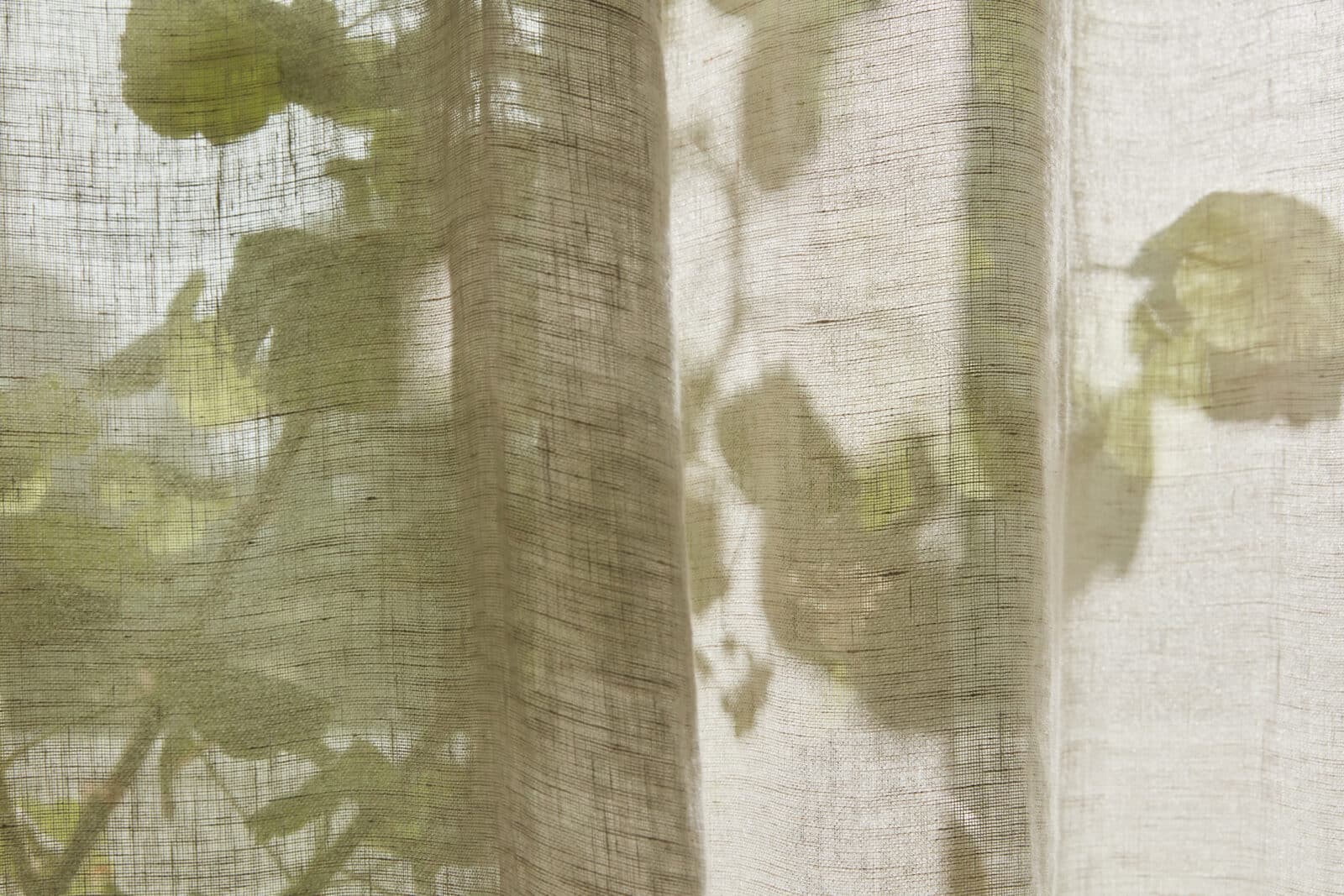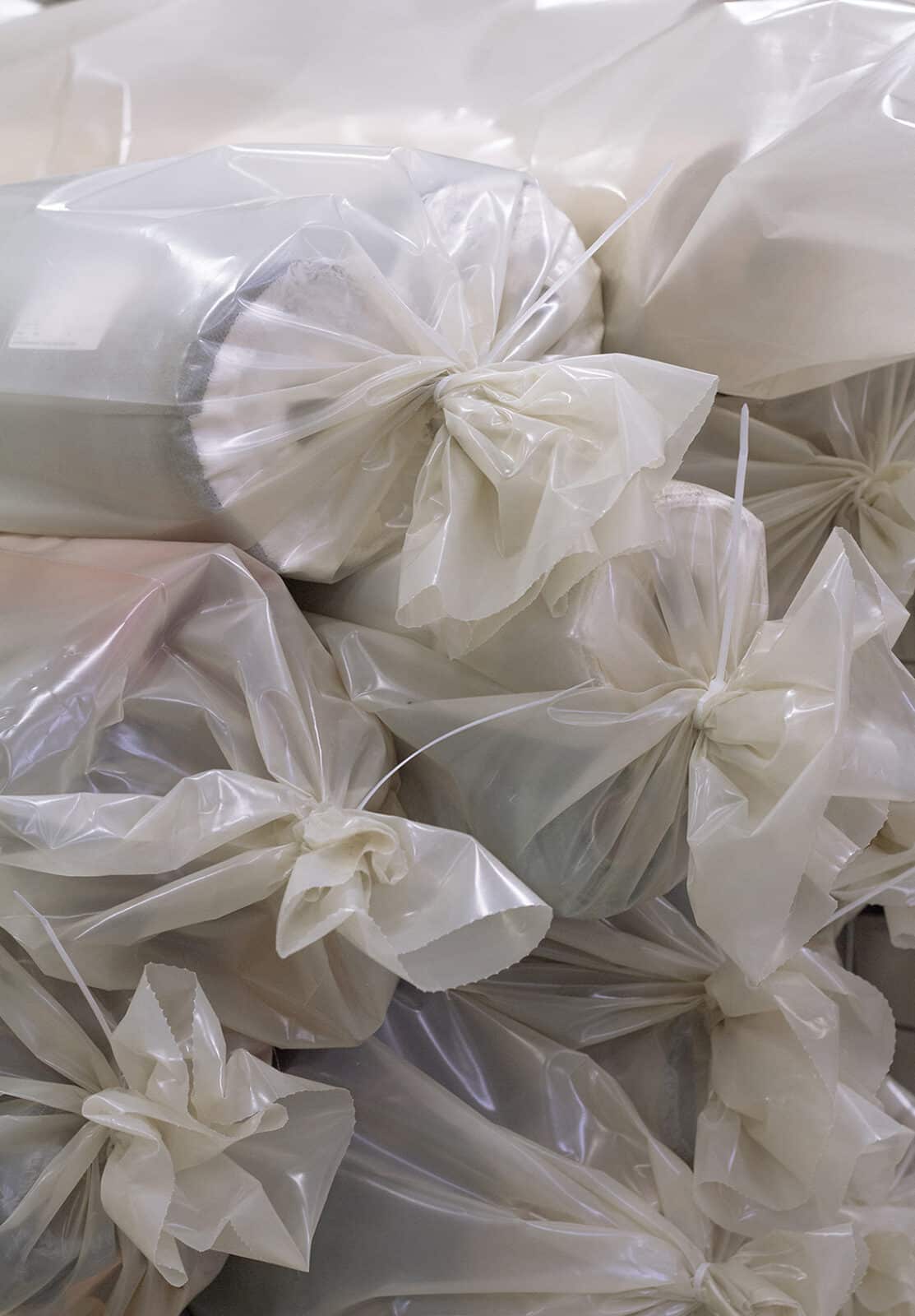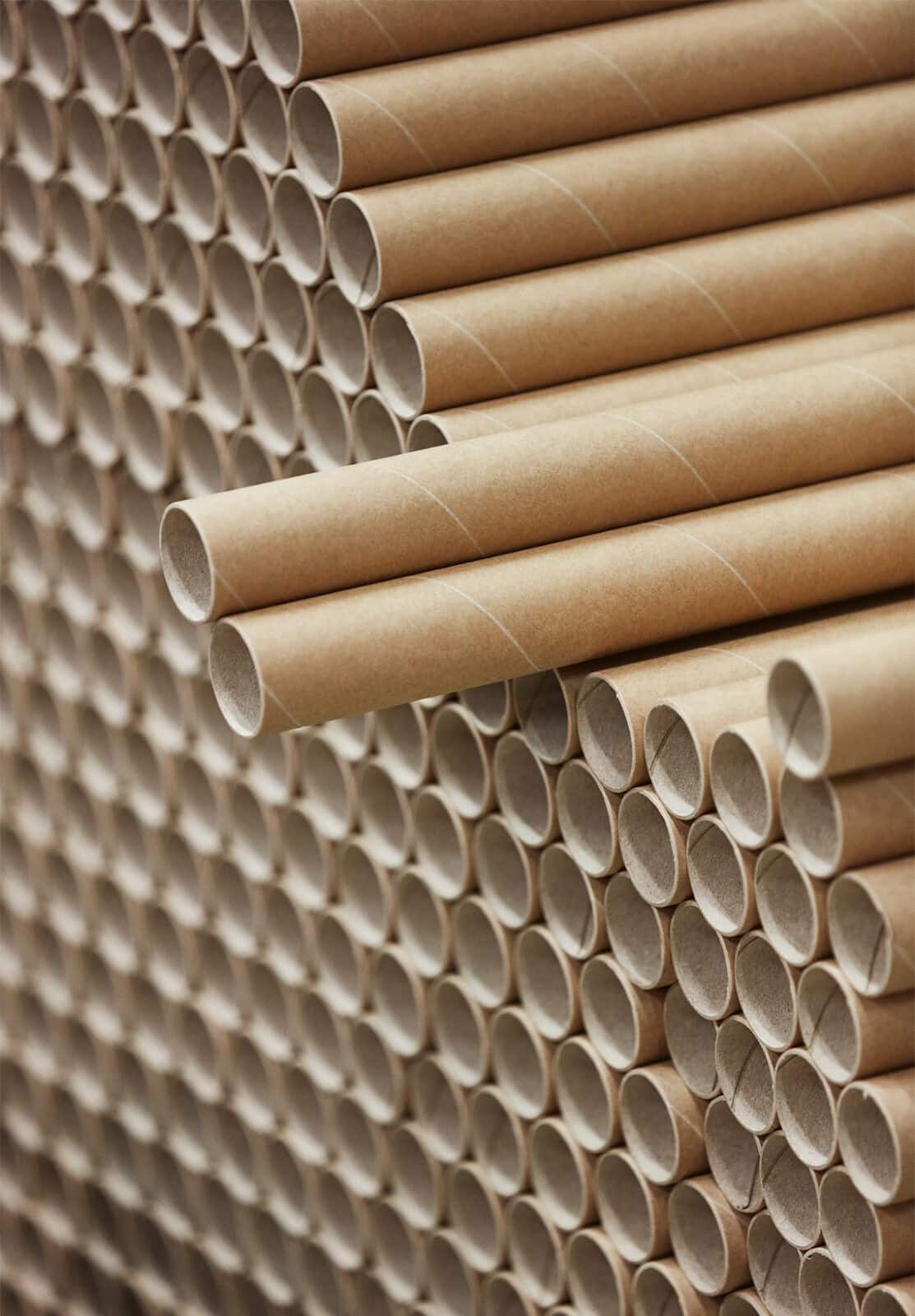
Companies bear a great responsibility in furthering sustainability since we are the ones producing commodities for customers to consume. By operating responsibly, we lessen the customers’ burden of finding and choosing a sustainable product. Furthermore, at Lauritzon we strive for transparency.
The sustainability of a fabric can be measured in multiple ways. For example, one might consider the fibres it is made of. Natural fibres, such as linen or hemp are made from sources that are renewable. However, some natural fibres are very delicate and break faster than other fibres. In this case, the life span of the textile made from these fibres comes into consideration. A small percentage of synthetic fibres, such as polyester, blended in with a natural fibre helps tremendously to increase the durability of the fabric. This makes the fabric stronger and it does not need to be replaced nearly as often. It is better to choose the fabric with the purpose of longevity in mind. We encourage sustainable and mindful consumption.
We recycle, and all of our facilities are powered by wind power. If we happen to have old hangers or pieces of fabric left over, we donate them to daycares to use as arts and crafts materials or other organisations where they can be utilised.
Sustainability is an ongoing process, and its technologies are constantly being evolved: for example, synthetic fibres such as polyester are more and more being made from renewable sources. As a small company, we have the benefit of agility in adopting these innovations to our operations.
Since 2007 all of our new fabrics have been certified by at least one of the following certifications.

Textiles that have the Oeko-TEX® STANDARD 100 certification contain no traces of allergenic, irritating or toxic chemicals. In order to receive the certification, the textile must pass the yearly inspected and updated criteria set by the Oeko-TEX® institute.

GRS, Global Recycled Standard is an international certification granted to textiles made from recycled materials. GRS certification guarantees that at least 20% of the textile’s composition is from recycled materials.

REACH certification guarantees that the chemicals used in the production of the fabric are safe for human health and the environment. REACH advances EU-wide co-operation in the research regarding chemicals and the way they are handled.

ISO 14000 is a family of environmental management standards aimed at helping organizations reduce their negative environmental impact, comply with environmental legislation and other relevant requirements, and continuously improve their operations. On our website, products marked with the ISO 14001 label are manufactured in accordance with a certified environmental management system.

ISO 9001 is an international quality management standard designed to ensure consistent product and service quality, while supporting continuous improvement. Certification requires that the company follows defined quality management processes and meets both customer and regulatory requirements. On our website, products marked with the ISO 9001 logo are produced in accordance with a certified quality management system.

The Restriction of Hazardous Substances Directive restricts the use of certain substances commonly used in electric and electronic equipment like Lead (Pb), Cadmium (Cd), Mercury (Hg), Hexavalent Chromium (Hex-Cr), Polybrominated Biphenyls (PBB), and Polybrominated Diphenyl Ethers (PBDE).

IMO - the International Maritime Organization - is the United Nations specialized agency with responsibility for the safety and security of shipping and the prevention of marine and atmospheric pollution by ships. IMO's work supports the UN sustainable development goals. MED - Maritime Equipment Directive - The main objective of the MED is to secure the supply chain using only trusted, registered suppliers by requiring full traceability and safety records of all products use onboard.

The majority of our fabrics come from Belgium, Italy and other European countries, but some fabrics are produced farther away. As we are committed to sustainability, we make sure that all aspects of our operations are as sustainable and ethical as possible – we conduct business only with factories and suppliers who respect the human rights of their employees. All of the countries our fabrics are made in, have notable weaving traditions and therefore great expertise in textiles.
As our packaging materials, we use cardboard and plastic, that is entirely made of recycled material, to increase sustainability. In transportation inside Europe, we use fully stocked freight trucks. In international transportation, we use train or sea freight with fully stocked containers.



Sustainability report, goals and action plan 2026



Expanding our Greencare collection



Increasing the usage of sustainable natural fibres

